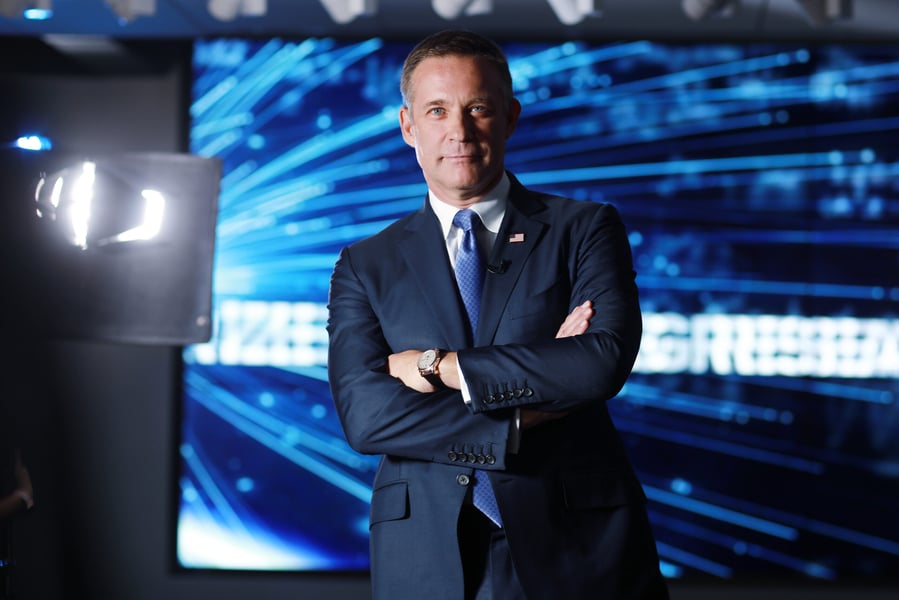

In 1991 Mark Matson took a major step on the way to experiencing his own personal American dream when he founded Matrix Asset Allocation, later to be renamed Matson Money, on a shoestring budget.
At the time, his company was one of the first RIAs to reject a commissions-based model, which Matson viewed as structurally incompatible with investors’ interests. Moreover, Matson sought to differentiate himself by providing investments based on a structured investing philosophy informed by science and the Nobel Prize-winning scholarship of economists Eugene Fama, Harry Markowitz, Merton Miller, and William Sharpe.
Fast forward to the present and Matson Money boasts over $11 billion in AUM, more than 70 employees and offices in two states.
The midwestern-born and raised Matson writes about his journey, the wealth management industry and his investing philosophy in his new book Experiencing the American Dream.
“My dad was always very entrepreneurial in his thinking and he built those values into me,” said Matson. “And I think that the American dream is at risk right now. A lot of people don't really understand the American dream, and it's only one generation away from dying if we don't spread it and share it for the next generation. So that was a large part of my motivation for writing the book.”
Of course, the so-called "American dream” has different definitions and connotations for everybody. Matson says he views it more as a form of “self-expression,” rather than the materialism, or greed, with which it is often wrongly associated.
“To have the ability to create a purpose for your life and a purpose for your money, and then fulfill that purpose by going out there and creating value for other people,” said Matson. “It's really focused on self-expression and creativity, entrepreneurism, individualism, and being responsible for your own life.”
As for the role of money when it comes to attaining one’s personal American dream, Matson admits it remains “hard to nail down.” And not simply because less people use cash nowadays.
Most people's relationship with money is out of scarcity, Matson writes. It’s "hard to get, hard to keep, hard to make and hard to invest" according to Matson. Therefore, he says people tend to be consumed by a “quiet desperation” when it comes to their finances. And even for those who are lucky enough to amass a lot of money, it can still make them miserable and unhappy.
As a result, Matson says his firm specializes in working with clients to change their relationship and their language around money. Once that happens, he says it can be an empowering force in their life, not disempowering.
“Money does not equal happiness,” said Matson. “It doesn't take a person a hard time to see people like Marilyn Monroe, Elvis Presley or Howard Hughes that had massive amounts of fame, massive amounts of money - but their money actually bought more pain than suffering than did happiness.”
When it comes to the wealth management industry, Matson still believes it tilts far too heavily towards market timing, momentum investing and “beating the market.” Matson Money eliminates that type of thinking, relying on modern portfolio theory and diversification instead.
“People need to diversify globally in 20,000 stocks, not 20,” said Matson. “And then they need to stay disciplined over 30 years, which is almost nearly impossible.”
Finally, Matson not only discusses his own thoughts about money, and people’s relationship with it, but he also gets a boost from actor Rob Lowe, who writes about his personal relationship with it in the book’s foreword.
“We are both Midwestern boys, he grew up in Dayton and I grew up in Cincinnati. Both Bengals fans and we just really hit it off. Really just formed a friendship,” said Matson about the West Wing and Wayne’s World star who has spoken at Matson’s annual American Dream Summit.
“He's a great guy and really hard worker. I don't know anyone that works harder than he does in Hollywood. His American dream was well-earned, for sure,” said Matson.

By listening for what truly matters and where clients want to make a difference, advisors can avoid politics and help build more personal strategies.

JPMorgan and RBC have also welcomed ex-UBS advisors in Texas, while Steward Partners and SpirePoint make new additions in the Sun Belt.

Counsel representing Lisa Cook argued the president's pattern of publicly blasting the Fed calls the foundation for her firing into question.

The two firms violated the Advisers Act and Reg BI by making misleading statements and failing to disclose conflicts to retail and retirement plan investors, according to the regulator.

Elsewhere, two breakaway teams from Morgan Stanley and Merrill unite to form a $2 billion RIA, while a Texas-based independent merges with a Bay Area advisory practice.
Orion's Tom Wilson on delivering coordinated, high-touch service in a world where returns alone no longer set you apart.
Barely a decade old, registered index-linked annuities have quickly surged in popularity, thanks to their unique blend of protection and growth potential—an appealing option for investors looking to chart a steadier course through today's choppy market waters, says Myles Lambert, Brighthouse Financial.
